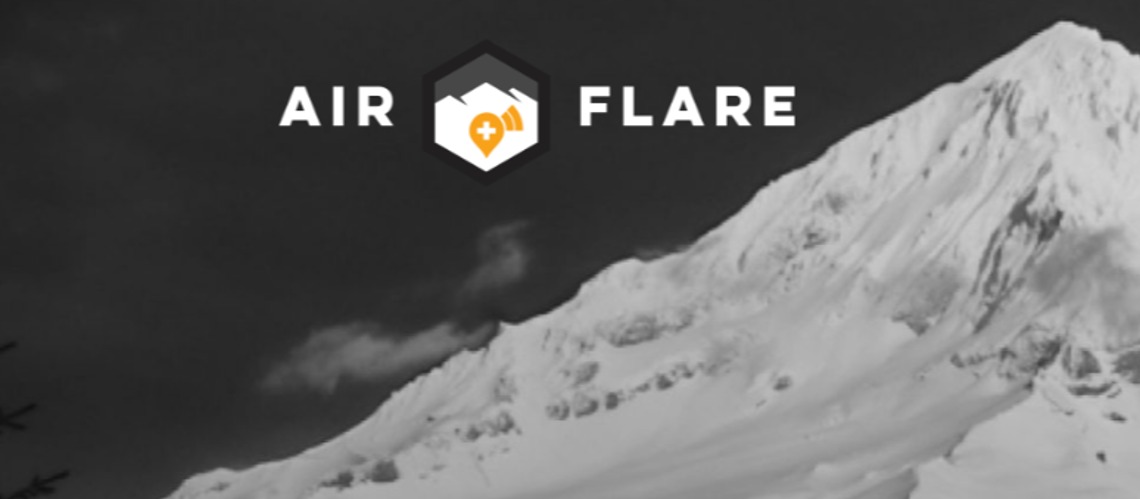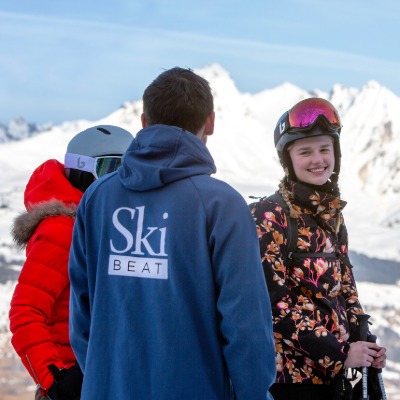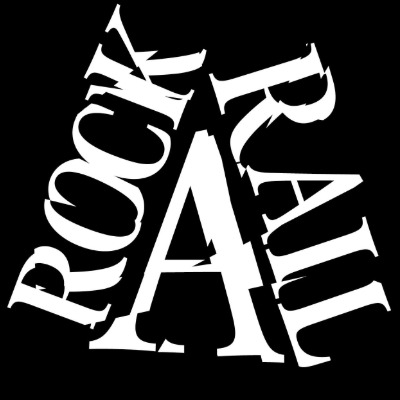AirFlare Saves Idaho Skier's Life

AirFlare, the app that turns your mobile phone into an outdoors rescue locator, announced its first documented life-saving intervention.
The incident took place Dec. 11, 2022, at Soldier Mountain in Southern Idaho, with the resort's patrol director, Dale Eldredge, and fellow ski patroller Jason Stockham breaking trail through at least 2 feet of fresh, wet snow for nearly two hours to get the lost skier out. She was out of bounds just south of the top of the Bird's Eye Lift (Chair 2) in an area called Bridge Creek.
The skier prefers to remain anonymous, and respecting privacy is critical to AirFlare. However, Eldredge and Solder Mountain management were happy to discuss the rescue without revealing any personally identifying information.
The patrol team trains extensively and assists guests every day, but Eldredge said it's especially rewarding to be involved in changing the outcome of an incident so dramatically.
It was foggy that day. Eldredge recalled you couldn't see 10 feet in front of yourself, and luckily the lost skier stayed in one spot once she realized her predicament. It was after 3:30 p.m., as ski patrol had already begun to sweep the mountain, which closes at 4 p.m. Eldredge said you can't see the chairlifts or the resort from where the lost skier was, despite only being a couple hundred yards out of bounds.
"Even if you're familiar with a mountain, when that fog sets in like that it disorients you," he said. "The lady wasn't very familiar with our resort. She'd only skied here a couple times and got separated from her family in the fog when they all made a lefthand turn and she went straight and ended up in the backcountry."
Soldier Mountain general manager Paul Alden said the lost skier had her cell phone with her, it was charged, and by some miracle she had some cell phone coverage. Operations manager Tucker Ray said she phoned the front office to report herself lost and one of the staff members sent her a text message with a hyperlink to the AirFlare app, which she was able to download.
"She was pinpointed on the map almost immediately," Alden said. "End of story."
Alden said the lady was extremely fit and a really good skier and was able to follow Eldredge and Stockham down the drainage and even helped break tracks. Alden said the lost skier kept her head about her and did everything right.
But did AirFlare really help save her life?
"I know it helped save her life," Alden said. "I was there. I know what it was doing that day. It was not a fun day. It was snowing to beat the band. There's no question AirFlare saved her life."
Eliot Gillum, inventor and CEO of AirFlare, was ecstatic.
"It's our founding dream come true to have made the difference in someone coming home safely," Gillum said. "Mishaps can happen to anyone at any time -- sometimes it's weather, lack of preparedness, or just bad luck. But AirFlare is serious protection that everyone can have on them all the time.
"Research shows more than 90 percent of people bring their phone on outdoor activities. Leveraging the relentless innovation and unlimited potential of smart phones makes AirFlare uniquely affordable to many times more people versus traditional rescue systems and -- critically -- is equally more likely to be present when needed."
According to Gillum, the core functionality of AirFlare's smartphone app, which is designed for strong, spotty, or zero connectivity, makes the phone instantly locatable by rescuers via even a fleeting Internet connection. In addition, the company offers rescuers their proprietary detector hardware that uses WiFi and Bluetooth to find a phone from up to 1km away. Friends and family can also use the app to check in via the same Internet-based technology as rescuers.
For rescuers, Gillum said AirFlare is a powerful toolset that makes them more efficient and effective at locating and assisting people in need of help. A web- or app-based console allows rescuers to initiate searches for AirFlare users or send an SMS message to non-AirFlare users allowing manual location transmission.
AirFlare recently launched Family Packs, making it easier for heads of households or AirFlare superfans to share the app with loved ones. Now, one person can keep friends and family safe with a single purchase or low-cost yearly subscription.
AirFlare now supports live chat between rescuers and users. It can be used to provide extra information to rescuers before they leave base, share new information in both directions as the situation develops, and facilitate rescuers remotely guiding users to safety.
"While the high quality and extreme accessibility of AirFlare may not always be easy to put your finger on, innovative features like this can very concretely demonstrate the unique power of our smartphone-based and 100-percent safety-focused system," Gillum said.
AirFlare co-founder Denis Lee said that upon hearing about AirFlare, many people mistakenly compare it to traditional special-purpose locator devices.
"We prefer to think of AirFlare as a base level of protection that everyone can have, complementing and strongly encouraging situationally appropriate tools," he said. "From avalanche beacons to satellite emergency notification devices, all are unique in their utility, training, and costs. Just as a craftsperson wouldn't leave a screwdriver at home because they're carrying a hammer, we believe everyone should always have all the right tools for the job. AirFlare is the protection everyone can have all the time."
The applications go far beyond ski areas, according to Lee.
"Virtually anyone who adventures in the outdoors can benefit from using AirFlare, including anglers, ATV and UTV riders, bicyclists and mountain bikers, birders, boaters, canoers, dirt bikers, hikers and trail runners, horseback riders, hunters, kayakers, rafters, rock climbers, snowmobilers, and snowshoers," Lee said. "You can even use it to find your friends at music festivals and theme parks. In all those environments, cellular service is often less than perfect and AirFlare's unique technology shines."
Gillum, Lee, and Kevin Lau founded San-Francisco-based Vector Flight LLC in 2016. The technology provider's driving vision is to bring rescue locators to the masses by leveraging the capabilities and ubiquity of today's smart devices. AirFlare's founders believe a world where everyone actually has a locator with them the day they need it is one with less tragedy and more focus on enjoying the outdoors, as well as one where rescuers can avoid unnecessary risk to themselves.
They would like to thank AirFlare's partners at mountain resorts and in search-and-rescue teams that have demonstrated the vision and tenacity to support the rise of this powerful new technology.
HOW TO GET AIRFLARE
Users can download AirFlare on the Apple App Store or Google Play.
* AirFlare offers many valuable features for free. The core locator functionality is supported by an annual subscription, which is currently $4.99, or a lifetime purchase for $14.99. Family plans, which include purchases and subscriptions for either five or 10 additional people, cost between $8.99 annually and $48 one time.
* Some ski areas offer it free to season passholders. Visit airflare.com for a list of participating mountains and other details.
Mountain resorts interested in using AirFlare to protect guests and staff should contact AirFlare co-founder Denis Lee at denis@airflare.com.
AirFlare also has an easy, low-cost program to onboard members of search-and-rescue teams. Email support@airflare.com for more information.














